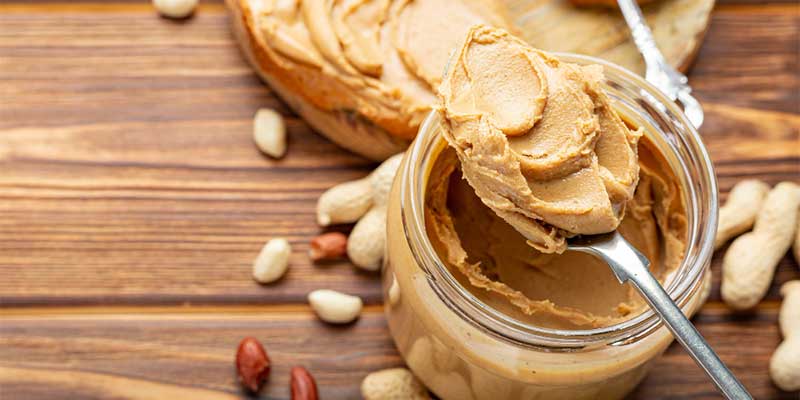Protein Content in 1 Spoon of Peanut Butter
Peanut butter has become increasingly popular in India as a versatile and nutritious food. One of its most appealing qualities is its high protein content, making it an excellent addition to many diets.
Let's explore the protein benefits of just one spoon of peanut butter and how it can fit into a typical Indian meal plan.
Protein Content in 1 Spoon of Peanut Butter
One spoon (about 16g) of peanut butter contains approximately 4g of protein, making it a tasty and convenient protein source for snacks. This may not seem like much at first glance, but it's a significant amount considering the small serving size.
To put this into perspective, 1 spoon of peanut butter provides nearly as much protein as half an egg.
Incorporating 1 Spoon of Peanut Butter into Indian Meals
Here are some creative ways to add a protein boost to traditional Indian dishes:
1. Peanut Butter Chutney: Blend 1 spoon of peanut butter with yogurt, mint, and spices for a protein-rich dip.
2. Peanut Butter Paratha: Spread a thin layer of peanut butter on your roti before folding it into a paratha.
3. Peanut Butter Smoothie: Add 1 spoon of peanut butter to your morning banana lassi for extra protein and flavor.
4. Peanut Butter Curry: Stir a spoonful of peanut butter into your vegetable curries for a creamy, protein-packed twist.
Benefits Beyond Protein
While protein is a significant benefit, 1 spoon of peanut butter also provides:
Healthy fats: Monounsaturated and polyunsaturated fats support heart health.
Fiber: About 1 gram per tablespoon, aiding digestion and promoting satiety.
Vitamins and minerals: Including vitamin E, magnesium, and potassium.
Choosing the Right Peanut Butter
When selecting peanut butter, opt for natural varieties without added sugars or hydrogenated oils. Many Indian brands now offer high-quality, natural peanut butter options.
Conclusion
Incorporating just 1 spoon of peanut butter into your daily diet can significantly boost your protein intake while adding flavor and versatility to your meals. As with any food, moderation is key, but don't hesitate to enjoy this nutritious spread as part of a balanced Indian diet.
Remember, while peanut butter is nutritious, it's also calorie-dense. If you're watching your weight, be mindful of portion sizes and consider how it fits into your overall calorie intake for the day.
By adding this simple, protein-rich ingredient to your meals, you can take a small but significant step towards meeting your nutritional needs and enjoying a more varied diet.
Citations:
[1] https://www.medicalnewstoday.com/articles/323781
[2] https://www.suite42.in/peanut-butter-market-growth/
[3] https://oncquestlabs.com/blog/benefits-of-peanut-butter-and-its-side-effects/
[4] https://m.tarladalal.com/recipes-using-peanut-butter-235
[5] https://www.slurrp.com/article/have-you-tried-these-delicious-indian-dishes-with-peanuts-1721389291311
[6] https://www.myprotein.co.in/blog/nutrition/health-benefits-peanut-butter/
[7] https://blog.cult.fit/articles/7-best-homemade-peanut-butter-recipe
[8] https://www.webmd.com/diet/peanut-butter-good-for-you


